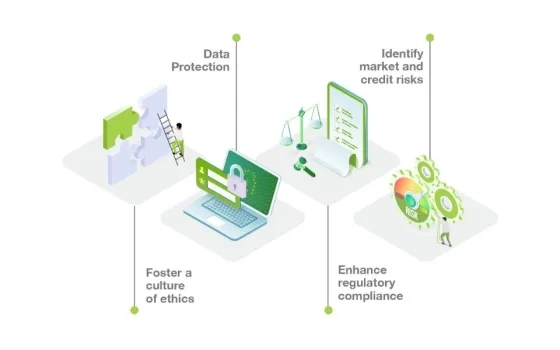One of the greatest dangers to developing countries is the middle-income trap, where crony capitalism creates oligarchies that slow down growth. Zero Defect Zero Effect Signifies production mechanisms wherein products have no defects and the process through which product is made has zero adverse environmental and ecological effects. Sector Ratio ranging from 6.90% for Service Sector, 1.40% for Agricultural Sector and 1.70% for Industrial Sector, boosting of manufacturing Sector which has performed poorly recording a expansion of barely 1.1% growth in 2012-13 followed by a contraction of 0.7% in 2013-14. Need to increase FDI from 2010-12, the country’s stock of FDI just totaled 12% of GDP while the developing country average was 30%. Helps in reviving growth that has continued to slow down and has been running below 5% for the last 2 years. For the massive increase in the growth rate by 4% to GDP,$ 200 billion of FDI would be needed. Low share of manufacturing sector to India’s GDP is only 15% as it is been compared poorly to other Asian nations. Lack of ease of doing Business wherein India is ranked 134 out of 189 countries in the world bank ease of doing business index. The world bank report notes that it takes 27 days to start a business in India where as in Singapore it takes two and half days for startup of Business. Lack of Basic Hygiene Facility and Anemic Global Growth leads to Infrastructure Arrears.
At a time when India’s Development pitch caused concern among skeptical environmentalists, Prime Minister Narendra Modi’s Make in India: Zero defect and Zero effect remark on Independence day-2014 came as a clear message that the country would not compromise on its commitment towards environmental protection.Let’s think about making our product which has ‘zero defect; so that it does not come back (get rejected) from the world market and ‘zero effect’ so that the manufacturing does not have an adverse effect on our environment said the prime minister while delivering his maiden Independence Day speech.It has been said that doing the thing right is as important as doing the right thing. India’s journey to prosperity can be a more sustainable and environmentally sensitive if we follow the Zero Defect Zero effect concept.
An overarching objective of Make in India: Zero Defect, Zero Effect is to examine the notion of competitiveness from the perspective of a country, a region, a business and an individual. The roles of individual initiative, business strategy and economic development policies in maximizing productivity calls for recasting to fully tap the dormant potentials for productivity improvement & Environment Protection. Productivity is the key to Prosperity, which in turn is an indicator of a country’s potential for economic growth in the short to medium term. Productivity in its new manifestation, as a culture of accepting and bringing about continuous achievements incorporating environment concern is an inescapable imperative.
Environment protection is the major challenge being faced by all the countries in the world. No doubt, there has been unprecedented technological development in different fields whether it be in the agriculture, industry business or other service sectors but such technological developments along with them have, side by side, brought about the degradation of the environment. Any kind of development could not be sustainable unless & until the development activities do not take care of environmental protection.
All kind of economic activity undertaken for the development of economy and society will use some kind of resources and have some impact on the environment. Therefore, it is necessary to evolve innovative ways to reduce the consumption of natural resources and develop solutions leading to sustainability of energy use and protection of global environment. As a matter of fact, any kind of development that is directed towards the development of economy and the society at large aims at enhancing the quality of life of the people. It cannot be fulfilled if the environment within which the society exists is deteriorating.
No one can rule out the global opportunities which are knocking the doors of Indian economy but, to capitalize this global opportunity Indian entrepreneur must have to achieve manufacturing excellence and have to carefully work upon competitive enhancement for their respective business. On such tough economic backdrop for business, the urge of ‘Zero Defect & Zero Effect’ from the Prime Minister is more like a challenge. By looking at the overall scenario and the status of Indian manufacturing this can also be termed as thumb rule to live up to the expectations of global opportunity and if the thumb rule is followed then the manufacturing segment of India could bring much awaited growth for the nation.
The wave of liberalization of economy in the world has brought about complexity and competition in each and every type of economic activity. Productivity is the only way to sharpen the competitive edge of every sector in the economy or the nation as a whole.
Competitiveness is a state of being able to outperform others. It is related with the ability to maintain and sustain amidst changes. It is the degree to which a region or nation can produce goods and services, which meet the test of International Markets, while its citizens earn a standard of living that is both rising and sustainable over the long run.
Productivity has to emerge as a new national priority, where the efforts of all converge to accelerate the process of economic growth, protect environment and raise the standards of living of our people. Our business organizations will have to improve their performance to ensure their survival and growth in a fiercely competitive world. This improvement will come about only if we focus on production of zero defect quality goods, in a cost effective environment friendly manner, and this must occur continuously, to create an advantage in the market place, which is what productivity is all about. Productivity, thus, will have to become a mass movement and to be put on the national agenda.
Productivity may be the outcome of various practices, but eventually is the result of a mindset. The crucial ingredient is the preparedness of the human mind to achieve zero defect, zero effect. Basic to this approach is the conviction that even the best can be improved. Therefore, workers, managers, policy makers and others should be ready to continuously and collectively work for inculcating this concept in every economic activity for the prosperity of the society as well as the country. Needless to mention, as we graduate further into knowledge era, traditional methods and principles will become increasingly ineffective and we will have to propagate the concept both at micro as well as macro level to realize a global competitive edge as envisioned by the Prime Minister of India. Make in India: Zero Defect, Zero Effect has therefore, been chosen as theme for Research Article submission.
Govt Officials said the initiative is meant to raise quality levels in the unregulated micro small and medium enterprises (MSME) sector, the engine of growth for the Indian economy, driving almost 38% of the nation’s GDP and employing 110 million Indians. It’s thereby seen as a cornerstone of the flagship Make in India programme, which is aimed at turning India into a global manufacturing hub, generating jobs, lifting incomes and boosting growth.
Officials said ZED will handhold MSMEs across the country in all Make in India sectors, through government-constituted quality control cells, which will also rate them, depending on yearly assessments of their products. Under the rollout plan, as detailed by officials, the focus states that will drive ZED initially are Maharashtra, Uttar Pradesh, Tamil Nadu, Gujarat and Karnataka, which account for 57% of total MSME employment and 59% of the sector’s exports.
With the pilot driven by Department of Industrial Policy and Promotion (DIPP) secretary Amitabh Kant and the main scheme led by MSME secretary Anup Pujari, the Centre has roped in Quality Council of India (QCI) for executing the plan and drafted a standard template for assessing enterprises.
ZED will be for MSMEs what Startup India is for startups, QCI chairman Adil Zainulbhai said. After all, an MSME is a startup. Even the person who opens a pharmacy is an entrepreneur and must be supported and encouraged. QCI was set up jointly by the government and Indian industry to establish and operate a national accreditation structure and promote standards through the National Quality Campaign.
In his August 2014 speech, Modi had said ZED would primarily look at making our product which has ‘zero defect’ so that it does not come back (get rejected) from the world market and ‘zero effect’ so that the manufacturing does not have an adverse effect on our environment.
Officials said the ZED project was conceptualized in September 2014, immediately after which QCI prepared the first draft of the model. The pilot was launched the next year with selected enterprises going through the entire ZED process.
The online self-assessment link was activated in July, after which detailed self-assessment reports were sent to 126 companies, an official said, adding that 40 awareness workshops have been conducted in 30 cities across India. In addition, 10 ZED cells that will implement the programme have been launched.
After studying the maturity assessment model to assess, rate and handhold the Indian industry based on quality and environment parameters put together by the QCI, the Centre is now ready for the national rollout, officials said. The initial focus sectors for the programme will be units in food products and beverages, textiles, fabricated metals products, chemicals and wearing apparel. Depending on the assessment, the units will be awarded ratings of bronze, silver, gold, diamond and platinum. A ZED platinum rating implies the manufacturer is of international standard and follows global best practices, they said.
India will go for a technology in the coming days which will be affordable and sustainable with both zero effect and zero defect.
Dedicating the National Institute of Science Education and Research (NISER) in Jatni to the nation, We should bring such a technology which will have no side effect on the environment, climate, global warming and also on society.
The products of this new technology will also have zero defect, which will be accepted not only in the country but also all over the world as quoted by United News of India, UNI
















